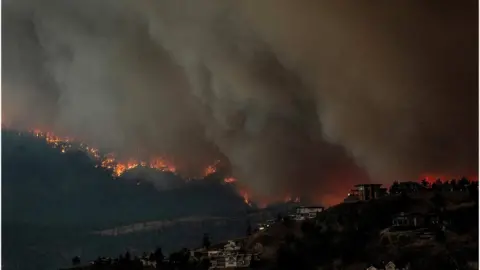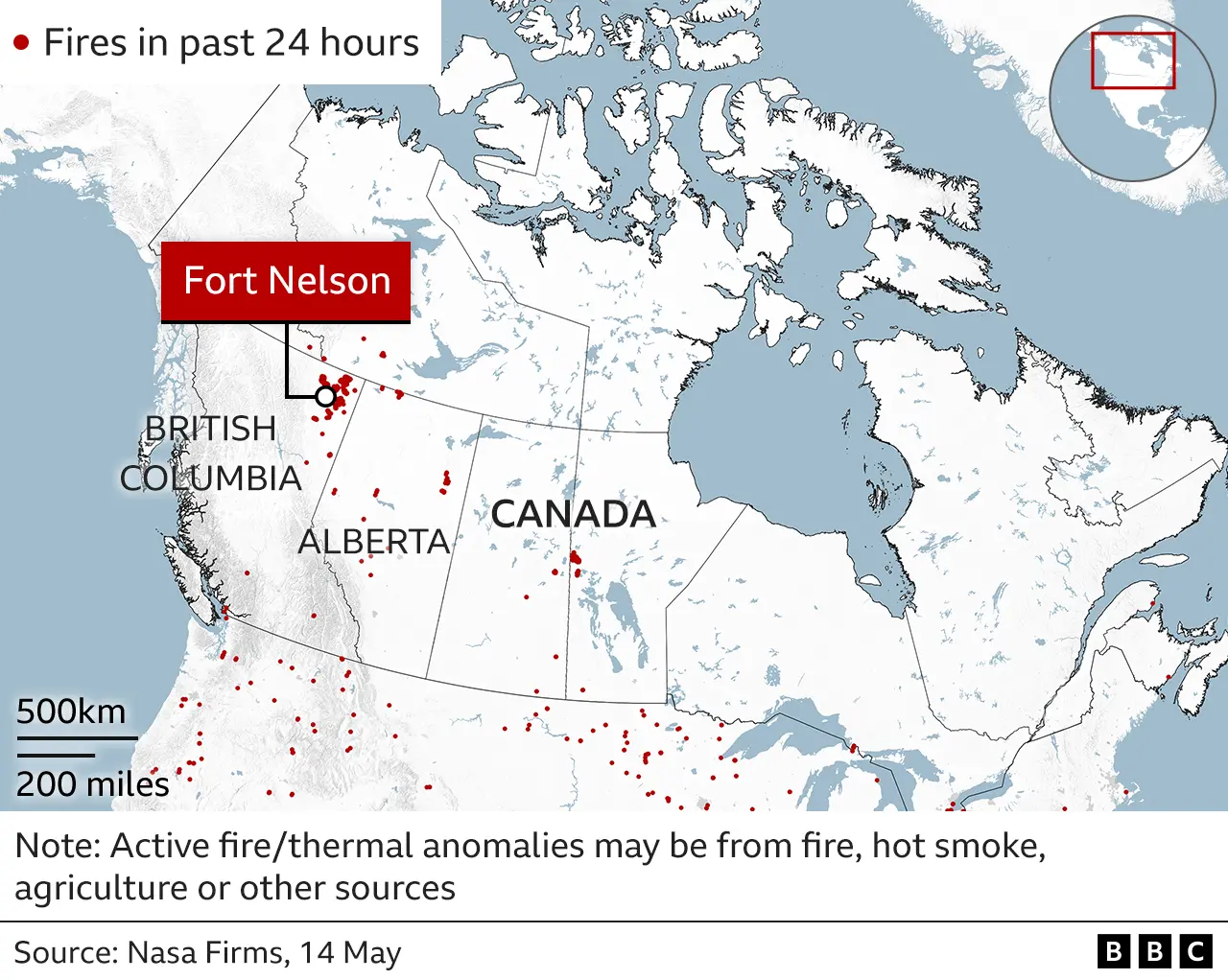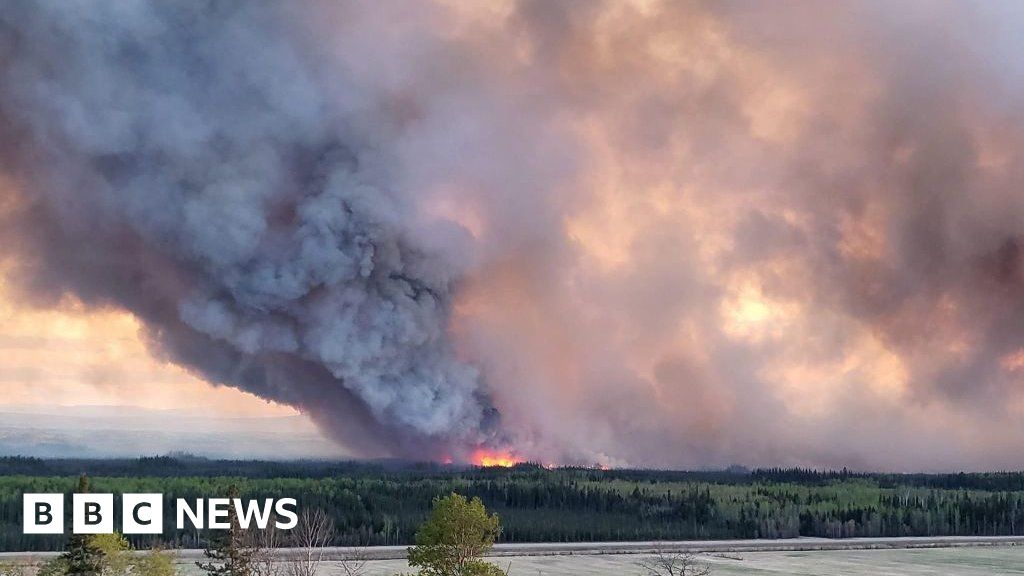By Ana Faguy & Nadine Yousif, BBC News, Washington DC and Toronto
 Dan Riedlhuber, Reuters
Dan Riedlhuber, ReutersThousands of people in western Canada are facing the wrath of wildfires this week amid severe drought.
Some six thousand people were ordered to evacuate Fort McMurray, Alberta, where 90,000 residents were forced to flee during the 2016 wildfires.
More than 3,000 others were ordered to leave Fort Nelson, British Columbia, where a fire was burning 2.5 km from the town.
Evacuation alerts were also issued in the provinces of Alberta and Manitoba.
Smoke from the fires has triggered air quality alerts in Canada and the United States.
Here’s what you need to know about fires.
Where are they?
Several fires ravaged Canada on Tuesday, some of which came dangerously close to cities.
One is near Fort Nelson, a town in northeastern British Columbia, about 1,000 miles from Vancouver.
About 3,400 people live in Fort Nelson and the Fort Nelson Indian Reservation. Most of them have since been evacuated due to the Parker Lake wildfire burning nearby.
On Tuesday, hundreds of people were also forced to evacuate near Fort McMurray, in northern Alberta, due to a fire that ravaged 13 km of the city. In 2016, a wildfire in Fort McMurray destroyed 2,400 homes.
Residents in the city itself and surrounding neighborhoods are on emergency evacuation alert, meaning they could be asked to leave at any time if the fire worsens.
In Manitoba, 550 people were evacuated in the northwest of the province due to a forest fire that broke out Thursday near the community of Cranberry Portage.
The wildfire had grown to 31,600 hectares (316 km2) as of Tuesday afternoon, almost the size of Manitoba’s largest city, Winnipeg.
It spread at an unprecedented rate over the weekend, officials said, and could take weeks to be brought under control.
“I’ve been working on wildfires for 40 years. I’ve never seen a fire move like this,” Earl Simmons, Manitoba’s wildfire director, told reporters Monday.
The Canadian Interagency Wildfire Center estimates there are 135 active fires across the country and 39 of them are out of control.

How did the fires start?
The Parker Lake fire, near Fort Nelson, started after high winds toppled a tree that crashed into a power line and caught fire, said Rob Fraser, mayor of the Municipality of Northern Rockies. Radio-Canada News last week.
British Columbia authorities said the fire was potentially human-caused, without providing further details.
The fire at Cranberry Portage is believed to have started after a lightning strike, Radio-Canada News reported.
It’s unclear how the Alberta fires started.
What causes forest fires?
There are two common sources of wildfires in Canada: lightning and humans, Gordon McBean, a professor of geography and environment at Western University, told the BBC.
Paul Kovacs, executive director of the Institute for Catastrophic Loss Reduction at Western University, noted that if a big storm moves across Canada, the storm can cause lightning in one location that starts a fire, then at another location which starts a separate fire.
But Canada’s vast territory and warming temperatures due to climate change also play a role, Professor McBean said.
Warming temperatures in particularly dry parts of Canada, such as the northwest provinces, can make those areas “more vulnerable and more likely to experience fires,” he said.
Is this an early start to the season?
For years, Canada’s wildfire season started in July or August, but over the past 20 years, wildfire season has started earlier and earlier in the year, Mr. Kovacs at the BBC.
This year’s wildfire season comes as the country recovers from its worst fire season on record in 2023, when an estimated 18.5 million hectares of land were burned, an area the size from North Dakota. On average, only 2.5 million hectares burn in Canada each year.
Kovacs noted that although forest fires started early again this year, as has become normal, last year at this time there were more fires than today.
“Last year was an extraordinarily early start,” he said.
But Mr Kovacs predicted this year would not be as bad as last year.
Federal government officials warned earlier this year of the possibility of another “catastrophic” wildfire season due to warmer-than-usual weather.
But wildfire season is highly dependent on weather conditions as summer progresses.

“Thinker. Hardcore web aficionado. Zombie evangelist. Pop culture trailblazer. Student. Passionate twitter maven.”







